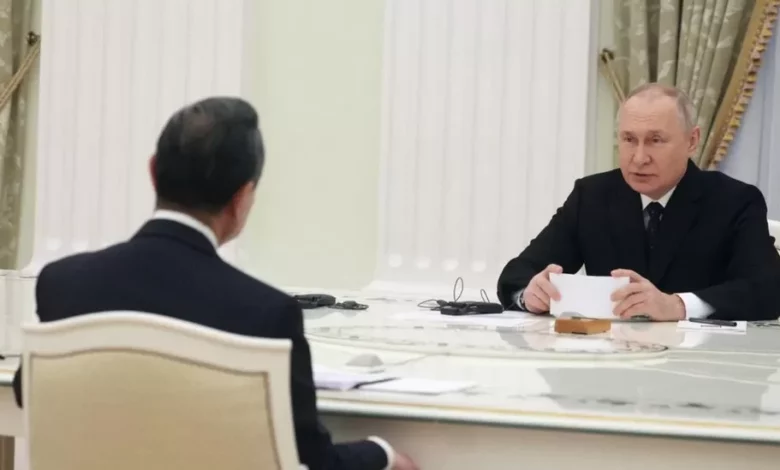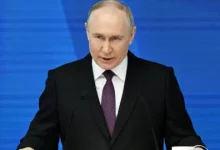
Vladimir Putin loves a really long table. Images of his meetings are famous, with the Russian leader at one end and the person he is speaking to so far away that you wonder if it is hard for them to hear one another.
It was not like that when he met China’s top foreign policy official, Wang Yi.
There they were, sitting within handshake distance, with an oval-shaped table in the middle.
It could be that the proximity was achieved by seating placement at a previously used table, with the Chinese delegation directly across the middle rather than at the long ends, but the effect was the same.
When the footage was released, it appeared to be a deliberately symbolic move to show that he felt safe enough to be that close to the representative of such an important friend.
Of course, it has not always been that way. Decades ago, Beijing’s network of underground fallout shelters was designed to protect the citizens of the Chinese capital from a nuclear war with the Soviet Union.
Yet now, Xi Jinping’s administration sees Russia as a front-line enemy of US influence. A nation which – like North Korea – may be considered an international pariah but which serves a useful geopolitical purpose.
The Chinese government did not even seem that embarrassed when President Putin returned home from attending Beijing Winter Olympics, having proclaimed a new “no limits” relationship with China and, within weeks, launched the invasion of Ukraine.
Many have asked whether Mr Jinping was warned about the imminent war when he sat next to his Russian counterpart who must have been considering barely anything else at the time.
China is walking along a very delicate path in its dealings with Russia over Ukraine. Mr Jinping may feel like he is confidently striding down the track, but some think that the path is crumbling at the edges, with Beijing’s claim to neutrality increasingly difficult to stand up.
Wang Yi comes out of meetings proclaiming that China and Russia are together promoting “peace and stability”.
—BBC






